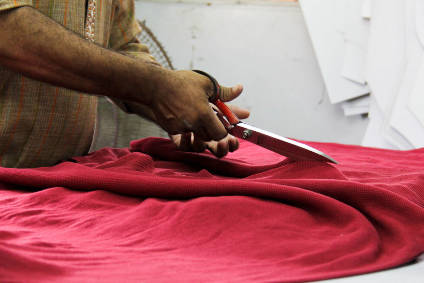
The response is outlined in just-published annual reports for seven established country programmes in Cambodia, Vietnam, Nicaragua, Jordan, Ethiopia, Haiti and Indonesia – along with the inaugural report for the new programme launched in Egypt.
The reports detail how Better Work teamed up with partner factories to mitigate the damage to workers and their livelihoods when the Covid-19 crisis devastated the garment industry in 2020.
Women, who make up approximately 80% of garment workers, were disproportionately affected by the pandemic, prompting efforts to address their particular challenges, including their health and safety and the specific needs of pregnant women.
Better Work’s response in each country was crafted to meet differing local needs, adapting global approaches to specific national circumstances, and covered social dialogue, wage protection, and health and safety measures in partner factories.
“At the beginning of 2020, we could not have anticipated that a pandemic would sweep the globe or the devastating impact it would have on the apparel and textile industry,” says Better Work director Dan Rees.
“We could not have imagined how disrupted our work and lives would be. Yet, Better Work has managed to make positive strides toward a more resilient and sustainable way of working.”
Country impact
The reports include key takeaways on how countries were affected by Covid-19 and Better Work’s responses:
Haiti – A survey of more than 3,300 workers indicated over 66% experienced work disruptions, such as temporary suspension, and 90% had to reduce food consumption. Better Work Haiti collaborated with the WHO to train medical personnel working in the sector, and the programme kept operations going by working with government labour inspectors to carry out reliable joint assessments when staff was prohibited from factory visits.
Bangladesh – During the first lockdown period in spring 2020, surveys in a sample of 250 factories showed that 38% faced order reductions and 34% faced order cancellations. Over 2.17 million workers were affected. The programme quickly pivoted to virtual services, launching a Learning Hub to equip national constituents with trainings and tools to ensure OSH preparation and strengthen social dialogue and hosting an online forum to create a shared vision for industry recovery.
Jordan – 84% of surveyed workers reported reductions in working hours and income in June 2020, and 75% reported greater mental stress. Better Work Jordan managed to relay news and support to migrant workers isolated in dormitories during Covid-19 quarantines through over 2,000 phone calls, in addition to online messages. The programme also introduced a new mental health initiative in 2021 to respond to these reported needs.
Egypt – Factories surveyed by Better Work Egypt indicated multi-million dollar losses in order cancellations. Even so, the programme brought together national stakeholders to enrol 40 participating factories and do an initial assessment of 75% of those factories.
The reports also preview some of the plans Better Work country programmes have for recovery in 2021.
Implementing the lessons learned from the past year, these efforts include multi-stakeholder initiatives to strengthen national social protections, creation of shared industry strategies for creating a more resilient industry, and increased use of hybrid in-person remote in-factory services to maximise impact and scale.


